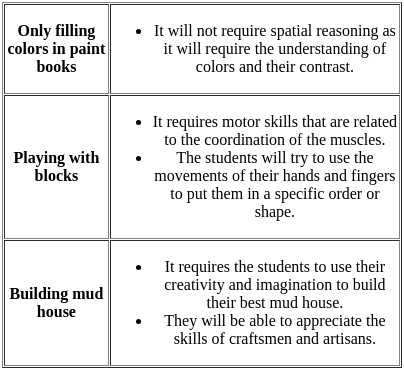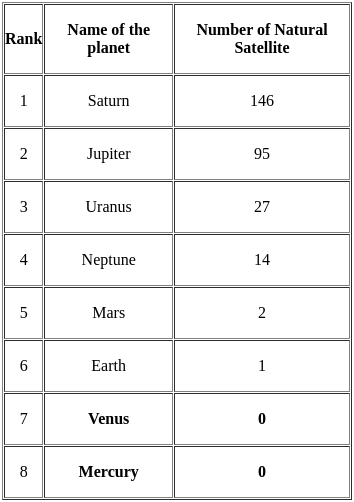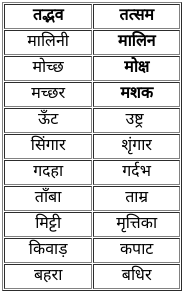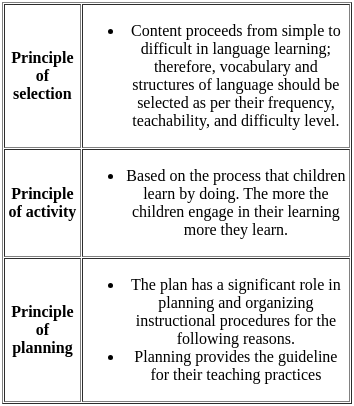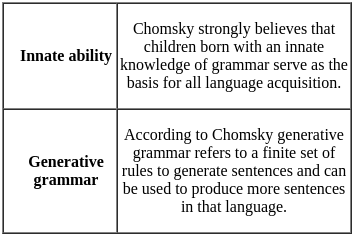MPTET Varg 3 Mock Test - 3 - MPTET MCQ
30 Questions MCQ Test - MPTET Varg 3 Mock Test - 3
Understanding of an individual's uniqueness in different nationalities and cultures and across ages is called ______
The current movement of behaviour modification wherein tokens are awarded for correct responses, is a reflection of
Christina took her class for a field trip before starting a new chapter in the class and after coming back, she discussed the trip with her students. It may be connotated as
'Embryonic stage' of the development refers to the period of
Which of the following should be assessed in a student?
Which of the following activities is most likely to develop spatial reasoning among students?
Which two planets of the solar system have no satellites?
The most effective measures for prevention against inundation during flood is:
Which of the following is/are the feature of Indian agriculture?
सूचना को एक स्थान से दूसरे स्थान को भेजने की व्यवस्था को कहते हैं-
Which of the following principles of teaching English emphasizes active participation of children?
Which project provides an opportunity to solar scientists to participate in space-based instrumentation and observations?
Which of the following statement is correct?
I: So far, ISRO only used S band for payload data downloading and used the X band for telemetry and command.
II: The indigenous antenna and station is capable of performing transmit and receive operations in both S and X bands.
III: The antenna can't be used for other deep space missions.
What is the most likely antonym of the given word 'INDIGENOUS'?
Which of the following is important for the selection of teaching learning material for students?



